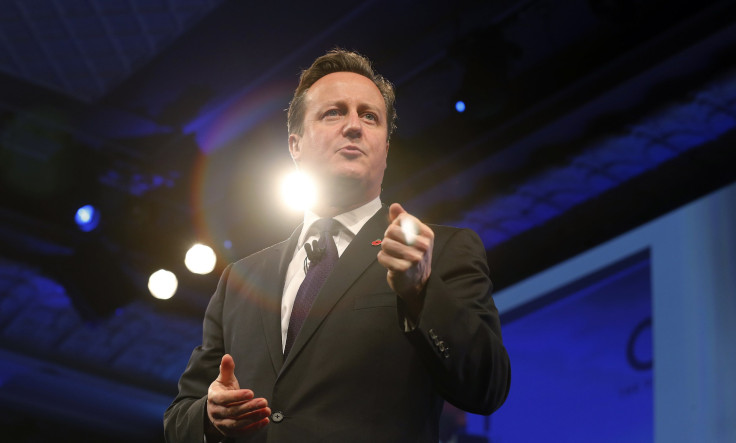Britain To 'Shortly' Introduce Foreign Fighter Laws To Deal With Jihadists At Home And Abroad

Britain will introduce tough anti-terrorism laws to address a rise in the entry of foreign fighters into the country, and to prevent British nationals from joining militant groups abroad, British Prime Minister David Cameron said Friday. Cameron said that the new laws are expected to be introduced “shortly.”
The new laws will help the government deal with British jihadists at home and abroad, Cameron said in an address to Australia's parliament Friday. Cameron also urged his countrymen to root out extremism from Britain, and said that the new counter-terrorism bill would take a tough stance against airlines that ignore Britain's no-fly lists or security-screening measures by refusing them permission to land on British territory.
“We must ban extremist preachers from our country, we must root out extremism from our schools, universities and prisons. As we do so, we must work with the overwhelming majority of Muslims who abhor the twisted narrative that has seduced some of our people,” the Guardian quoted Cameron as saying, before he left for Brisbane to attend the G-20 summit.
The new laws will allow local police to seize passports to stop suspects from travelling abroad, and to stop British nationals from returning home, if they fail to submit to screening processes. In September, Britain’s Deputy Prime Minister Nick Clegg said that the current law in the U.K. does not allow authorities to confiscate passports of its citizens fighting Islamist wars in the Middle East, or revoke their citizenship as it would mean a breach of international law.
Some security experts have raised concerns about giving police the power of taking away passports of U.K. citizens and leaving them stateless. Dominic Grieve, a former attorney general, had previously warned the government that taking away the passports of UK citizens returning to the country would break international as well as UK common law.
According to security analysts, Britain's security threat level rose to its second-highest level in August because of the risks posed by British-origin Islamic State fighters returning home from Iraq and Syria, where thousands of foreign fighters are believed to be involved in the region's conflicts.
There are as many as 500 British citizens engaged in fighting for the Islamic State group in Syria and northern Iraq, and their return would represent the single greatest threat to the country, Cameron recently told parliament.
In July 2005, four British nationals -- two of whom attended al Qaeda training camps in Pakistan -- killed 52 people in suicide bomb attacks in London. Last year, Lee Rigby, an off-duty soldier, was murdered by two British Muslim converts on a London street, Reuters reported.
© Copyright IBTimes 2024. All rights reserved.












